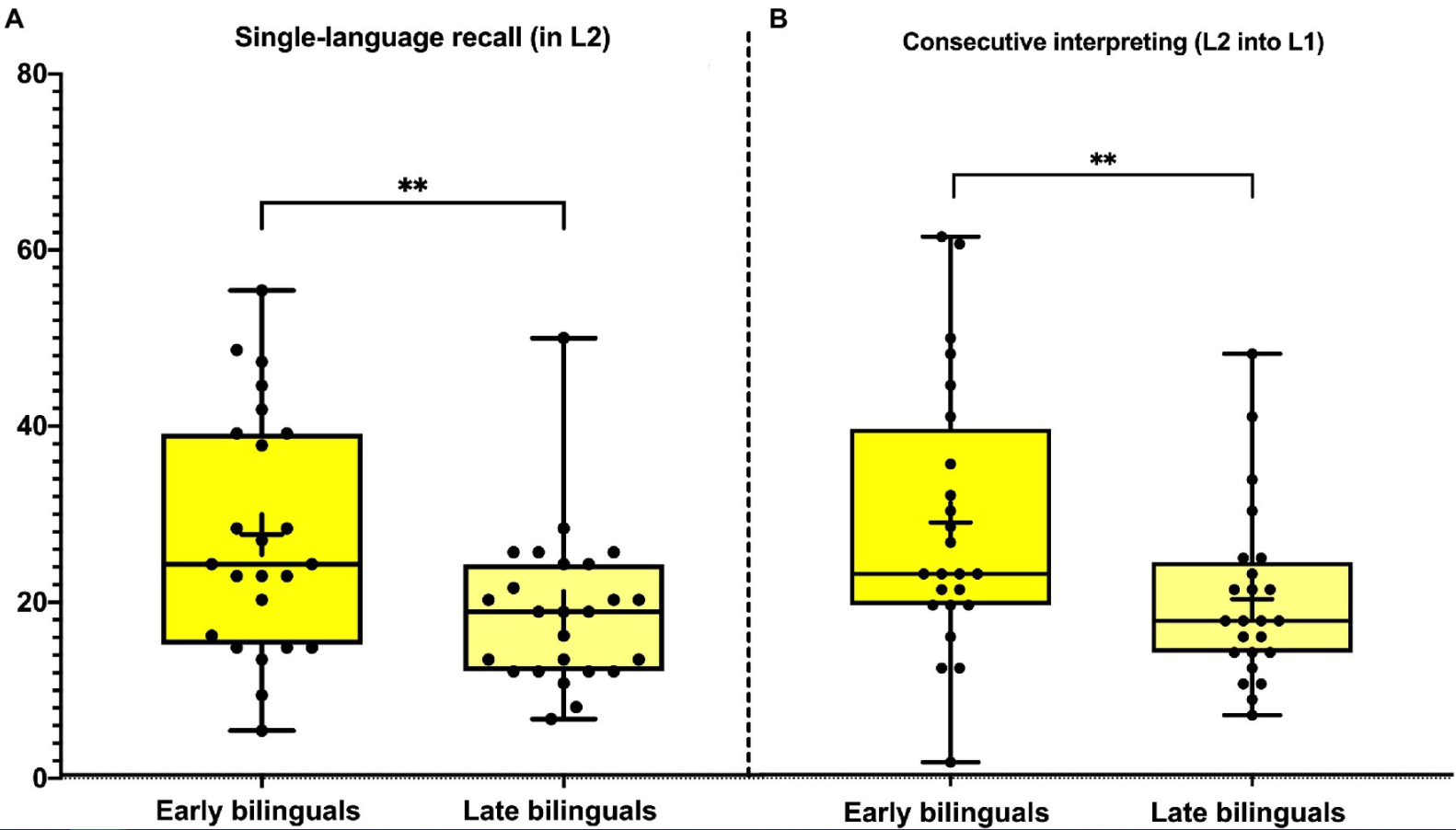Discourse-level information recall in early and late bilinguals: Evidence from single-language and cross-linguistic tasks
Chou, I., Hu, J., Muñoz, E. & García, A. M. (2021). Discourse-level information recall in early and late bilinguals: Evidence from single-language and cross-linguistic tasks. Frontiers in Psychology 12, 757351.
Este trabajo explora el impacto de la edad de apropiación de una segunda lengua en capacidades de memoria. Convocamos a hablantes de chino mandarín e inglés pertenecientes y los dividimos en bilingües tempranos y tardíos. Los primeros evidenciaron ventajas significativas para recordar información de clips radiales reales, tanto en una tarea unilingüe como en otra croslingüística. Tales efectos no se vieron influenciados por diferencias atencionales. Los resultados sugieren que una baja edad de apropiación de la segunda lengua podría facilitar el acceso a la información en situaciones discursivas cotidianas.
Para acceder al artículo, hacé click aquí.
Discourse-level information recall in early and late bilinguals: Evidence from single-language and cross-linguistic tasks
Chou, I., Hu, J., Muñoz, E. & García, A. M. (2021). Discourse-level information recall in early and late bilinguals: Evidence from single-language and cross-linguistic tasks. Frontiers in Psychology 12, 757351.
Bilingualism research indicates that verbal memory skills are sensitive to age of second language (L2) acquisition (AoA). However, most tasks employ disconnected, decontextualized stimuli, undermining ecological validity. Here, we assessed whether AoA impacts the ability to recall information from naturalistic discourse in single-language and cross-linguistic tasks. Twenty-four early and 25 late Chinese-English bilinguals listened to real-life L2 newscasts and orally reproduced their information in English (Task 1) and Chinese (Task 2). Both groups were compared in terms of recalled information (presence and correctness of idea units) and key control measures (e.g., attentional skills, speech rate). Across both tasks, information completeness was higher for early than late bilinguals. This occurred irrespective of attentional speed, speech rate, and additional relevant factors. Such results bridge the gap between classical memory paradigms and ecological designs in bilingualism research, illuminating how particular language profiles shape information processing in daily communicative scenarios.
To access the full paper, please click here.



